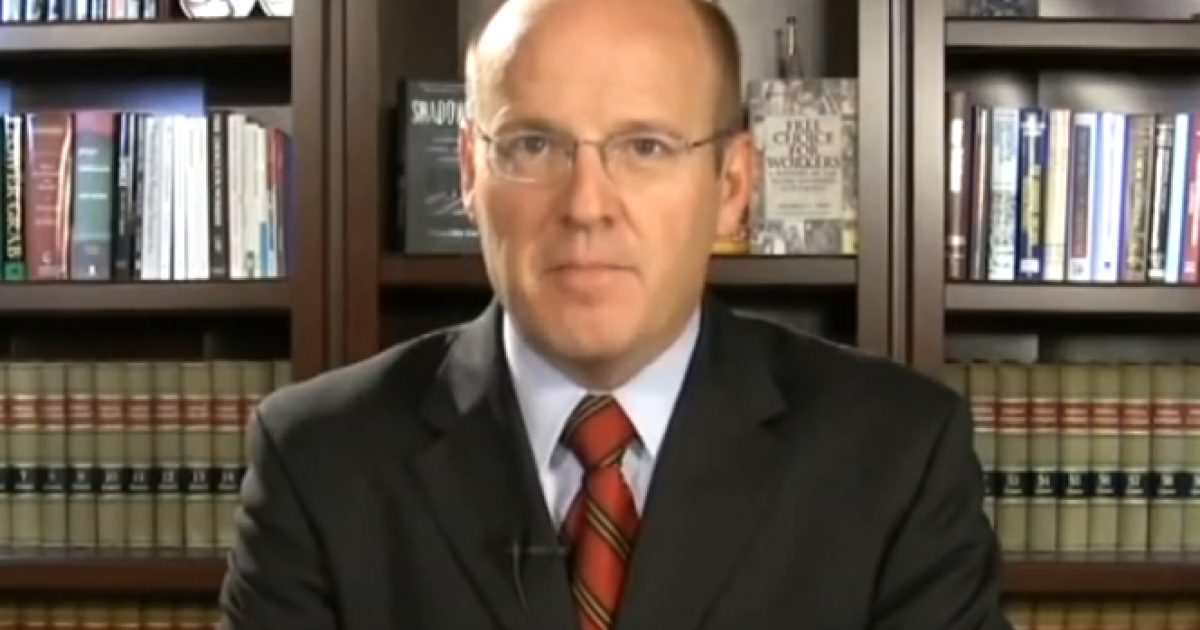
On February 6, 2020, the National Right to Work Committee President Mark Mix criticized Nancy Pelosi and her Big Labor cohorts in Congress for passing H.R. 2474.
This bill is the so-called “PRO Act,” which would repeal all Right to Work laws in 27 states, let Big Labor build unions without secret ballot, and empower union bosses.
Mr. Mix stated, “This was a vote to let the union bosses put their hands back in workers’ pockets. Every member of Congress who voted for this abomination should be ashamed of themselves.”
“80% of Americans agree it is just plain wrong to force workers to pay union dues or ‘fees’ just to get or keep a job. But these politicians shamelessly kowtowed to the demands of the union bosses who fund their campaigns with forced-dues dollars,” Mr. Mix added.
“Right to work supporters will remember and will hold Big Labor’s puppet politicians accountable.”
For over 70 years, Right to Work laws have been a feature of many state legislatures across the country.
In 1935, Congress granted Big Labor the power to coerce employees to accept their so-called “exclusive representation,” making it illegal for workers to represent themselves.
Then, to add insult to injury to independent-minded workers, Congress gave union bosses the power to demand that workers pay for that “representation they don’t want, didn’t ask for, and which may even be working against their interests.”
In 1947, Congress gave states the right to pass Right to Work laws, partially correcting this error within their own state boundaries.
Mr. Mix called attention to the fact “state Right to Work laws have brought tremendous economic benefits to the states that adopted them.”
According to studies cited that Mr. Mix alluded to, job growth in Right to Work states has been twice as great as that of states with forced unionization, the average family in a Right to Work state has $4,500 more to spend in after-tax real income, and forced-unionism states have nearly triple the number of people on welfare per capita.
Most business relocation consultants concede that as many as half of their clients, when considering where to relocate or grow their businesses, immediately cast non-Right to Work states to the side, thus leaving forced unionization states at a competitive disadvantage.
That’s why, in Mr. Mix’s view, “Wiping out state Right to Work laws just gives companies one more reason to move their operations overseas.”
Furthermore, Mr. Mix pointed out that Right to Work laws hold union leadership more accountable.
“When union bosses can force people to pay dues or ‘fees,’ they don’t have to worry about what those people want or need,” asserted Mr. Mix.
“Often, the only thing the union bosses end up caring about is how much money they can collect, and how lavishly they can spend it on their own comfort and on the politicians they keep in their hip pockets,” Mr. Mix added.
H.R. 2474 changes all of this by empowering Big Labor to collect forced dues, regardless of whether or not a state has Right to Work policies in place.
Mr. Mix has encouraged Right to Work supporters to get loud and to “call every politician who voted for this massive Big Labor power grab, and demand an apology for their vote to bring back the shackles of forced unionism across the country.”



